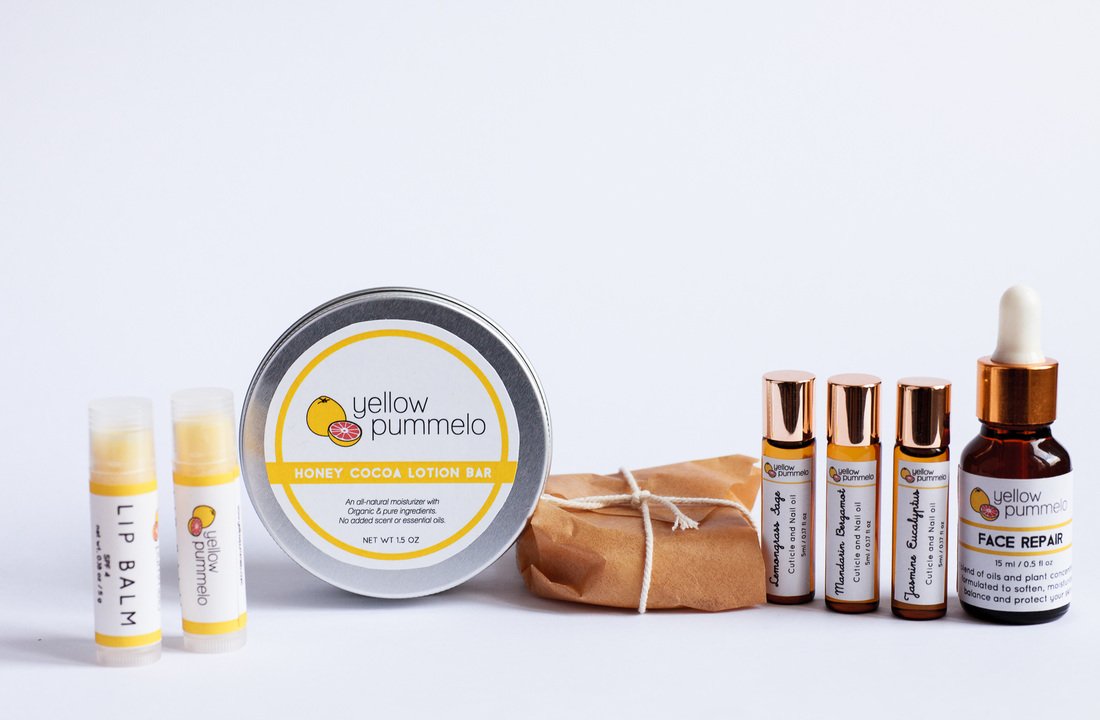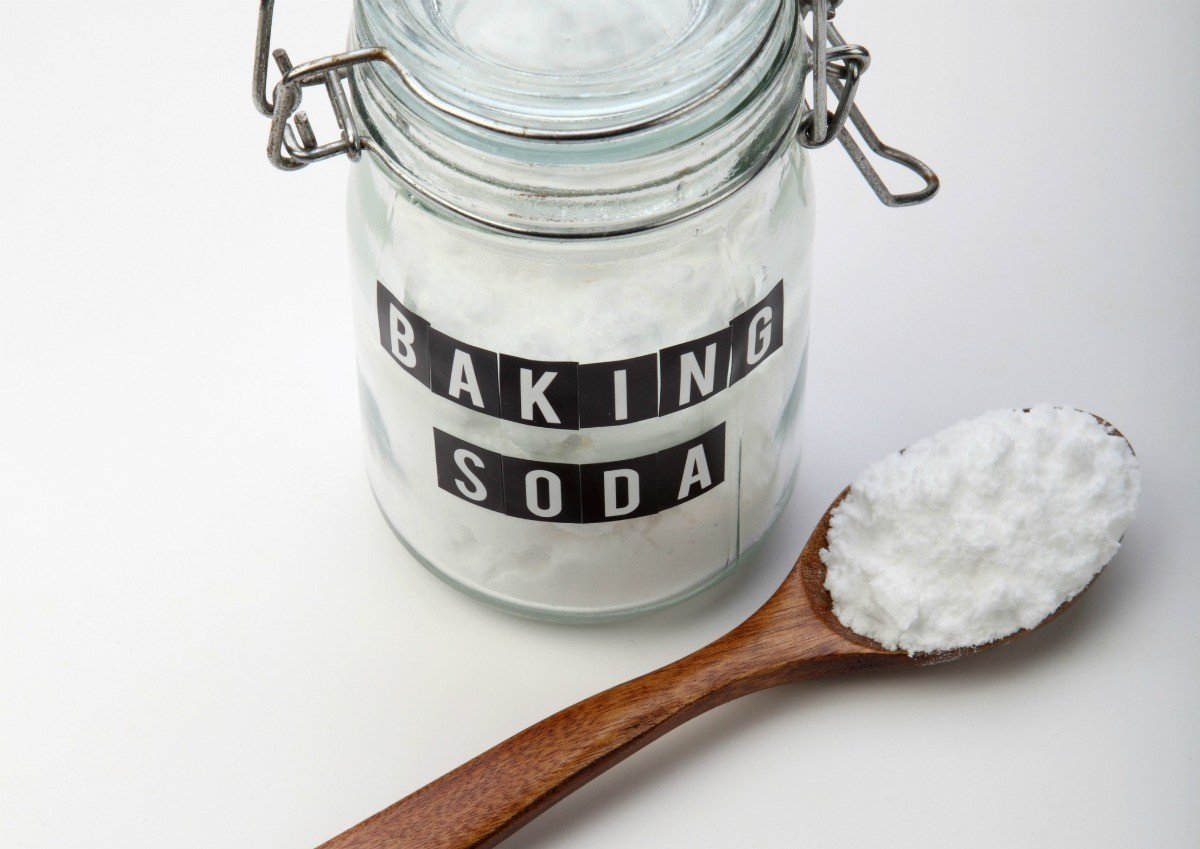How (And Why) I Banned Plastic From My Bathroom
/Published on theBeijinger on 8th July 2019
I’m on a quest to remove plastic from my life. Sick of buying big, thick plastic bottles of shampoo, soap, cleansers and lotions that probably will never really get recycled, I've been converting my bathroom and personal hygiene routine to the zero-waste* method, whereby I make as many of my own products as I can, and buy others either without packaging, or in reusable containers.
Making the change in the bathroom is much easier than you might think, and there are dozens of awesome makers right here in Beijing to help you on your way.
*Being truly "zero waste" is nearly impossible, and not meant to be taken literally. The goal is all about reducing your waste and shunning single-use plastic.
Soap
This one’s easy! Just buy un-packaged soap bars from one of the many local soap-makers here in Beijing. There’s a wide variety of different perfumes, oils, and combinations available, but I am particularly partial to Verve bars (available via The Bulk House WeChat ID: TheBulkHouse_China), both the traditional and loofah-poured options. Homemade soaps also tend to be lower in sodium lauryl sulfate, an almost universally used ingredient in commercial soaps and shampoos which is renowned for stripping natural oils and drying out the skin. Prolong the life of your soap (and haircare) bars by storing them in such a way that they dry out fully between uses.
Haircare
Solid shampoo and conditioner bars are the bomb. Not only are they zero waste, but they also last forever and are perfect for travel. The ones I am currently using come from Lush (the closest store to us is in Hong Kong) and a local soap factory in Perth, Australia, however, The Bulk House does offer a solid shampoo bar. Conditioner bars are a bit trickier to find, if you know somebody making them in Beijing, let me know in the comments!
When it comes to applying, the shampoo bar lathers just like soap but with hair-friendly compounds. Conditioner bars do not lather, and instead require you working up a paste in damp hands for a while and applying to the hair, which takes a little extra work and patience. Post-shower, I keep my hair conditioned with hair oil from Zest Skincare (WeChat ID: Zestislife) and a slick of conditioner paste when I get out of the shower. And, every now and then, I top up with an easy DIY coconut oil hair mask.
Makeup removal
I am still working my way through a big bottle of Bioderma micellar water from my last trip to France, but when that’s done, I’ll be trying out the Face Balm and Super Hydr8 Face Serum by The Green Room (WeChat ID: TheGreenRoom) which my colleague Nicole Bonnah swears by. Instead of applying the product with wasteful cotton pads (which also soak up half the product), I just use my hands, but you can sew your own washable cotton pads or even crochet wool ones yourself.
Facial cleansers
After taking off any makeup, I alternate between the gentle Raw Honey facial wash from Zest Skincare and soap-free powder cleanser from Yellow Pummelo. I have dry skin, and the raw honey wash leaves my skin feeling cleansed and soft without being stripped of oils, while the delicious matcha-scented scrub cleanses my face gently and gives a great exfoliating buff. Both products are also made locally and you can return the containers to the maker for refilling. There are also plenty of recipes online for homemade cleansers using ingredients such as oatmeal, tea, coconut oil, honey and more.
Lotions and creams
My dry skin is rather easy to look after, and I generally just slather on BioOil at night and use a mix of sunscreen and lotion during the day. I’ve used BioOil for years but when my current supply runs out I’ll be trying out the Face Repair from Yellow Pummelo (WeChat ID: YellowPummelo), which comes in a glass dropper jar.
For the rest of my body, I’m still working my way through a giant tub of lotion I bought over a year ago, but I keep a tin of solid lotion bar from Yellow Pummelo in my handbag for when I’m out and about, and am eyeing off some of the many other local makers here like The Green Room, Velveteen (WeChat ID: franhanshing), Verve, Nuobelle (WeChat ID: ahneetah11) and more.
Deodorant
Commercial deodorants are packed with additives and their packages are generally very wasteful. There are a plethora of natural deodorant recipes on the market, but the active ingredient in almost all of them is plain old baking soda. I apply it directly, patting it on like old-fashioned talc, and it works great for me, though it can be irritating to the skin directly after shaving. Erica Rodriguez, a local natural skincare maker and Experiential Education Facilitator (WeChat ID: Rica-Rod) recommends mixing it with arrowroot powder, cornstarch or another ‘carrier powder’ for a gentler option, while others mix it with coconut oil to create a balm. Success with DIY deodorant is highly variable and depends on your natural hormonal balances, so don’t get too down if this doesn’t work out for you. Being zero waste is one thing, but feeling confident and sanitary is quite another.
Toothpaste
Disclaimer: I am not a dentist, and you should always consult your dentist and do plenty of research before changing up your dental hygiene habits. I make up small batches of toothpaste every week or so by combining baking soda and coconut oil. It is great at removing stains, however, you do need to be careful and brush gently as the abrasive nature of the baking soda (fine for teeth) is harsh on gums. Receding gums is no joke. Other very popular DIY toothpaste ingredients include bentonite clay, activated charcoal, and sea salt but each come with their own pros and cons. If you feel uneasy about mixing up your own toothpaste, many companies sell homemade, eco-friendly tooth powders and alternatives online, all of which are more eco-friendly than a tube of Colgate.
The Bulk House sells a variety of bamboo toothbrushes, and when it comes to flossing, the zero-waste community usually turns to floss made from silk or other natural fibers rather than the usual plastic.
Hair removal
I just hate plastic razors. Not only are they unrecyclable, but they only come in lame, gender-normative ‘lady’ and ‘man’ colors. I switched to a butterfly razor from The Bulk House a while ago, and haven’t looked back since. Blades cost next to nothing, but using a safety razor takes a smidgen more care than a plastic Gillette, so go slow at first. According to Michael Gora, founder of Straight up Razors, a German-owned company based out of Shanghai (WeChat ID: straightup-razors), humidity dulls a blade very quickly, so to keep the blade sharp for as long as possible, dry it off after each use, and don't store it in the shower stall. When the blade is truly done for, Gora recommends putting it in a strong clear container, like an old plastic box or glass jar. When the container is full of blades, tape it shut and throw it in the trash. A trash picker will be able to safely grab it, identify the metal blades and take them to a recycling station.
If you prefer to wax, going to a salon is a pretty good zero-waste option, as is creating your own sugar wax, an age-old hair removal technique. I haven’t tried this personally, but many people swear by it.
Ears
First things first – you really shouldn’t be putting anything in your ear canal because the potential to cause damage to your eardrum is just so high. But if you just can’t resist having a dig around, at least swap out wasteful Q-tips with a bamboo earpick such as one sold by The Bulk House or pretty much any TCM grandpa. Just promise you’ll be very gentle while hunting around for wax.
Menstrual care
Tampons and sanitary pads are very polluting (they cannot be recycled and anything containing cotton requires a lot amount of water to produce), so for years now, I’ve been using a silicone menstrual cup, such as one pictured above. They come in a variety of names and brands (Moon Cup, Ruby Cup, Diva Cup, Luna Cup, Fleur Cup, etc.) but they are all basically the same products. Using a menstrual cup takes a bit of getting used to, but it’s really worth trying it out. I find it far more comfortable and convenient than tampons or pads, it's far cheaper in the long run, and it drastically reduces your waste footprint, as one cup can be used for approximately ten years, replacing thousands and thousands of unrecyclable hygiene products. Other alternative or complementary zero-waste menstrual care options that are very popular include washable fabric liners (which you can sew yourself or buy), and ‘menstrual underwear’ like Thinx.
Above all, all bodies and cycles are different and for a variety of cultural, medical or religious reasons these options may not be suitable to all.
Toilet time
Here’s a weird confession: I secretly yearn to own a bidet. It’s like a spa, but for your butt! Like many people in Beijing, I don’t flush paper down my toilet at home as I don’t want to risk blocking the old building’s pipes, but I don’t like having to dispose of paper in a waste bin – not only is it kinda gross, it’s not very ecological: while paper is biodegradable, plastic garbage bags are not. My colleague swears by his Xiaomi bidet, and confirms that it has dramatically reduced the amount of toilet paper his family uses. If you’re ready to take it a step further, look into “family cloth” which is a truly zero-waste toilet solution, but not for the faint-hearted. I’ll let you research that one yourself…
General Tips and Advice
Listen carefully to your body, because your health should always remain the number one priority. I recommend experimenting and trying out different solutions and going online to do extra research. If you are interested in joining the Beijing-based Zero-Waste community WeChat group, add WeChat ID THE_BULK_HOUSE _1 and request to join. The /ZeroWaste subreddit community is also a fantastic resource for inspiration, advice, ideas, and recommendations.
Take it slow and don’t get overwhelmed. Buying new products to replace the old, perfectly usable ones you already have isn’t very ‘zero-waste’ so do make an effort to use up the products you already own first.
The terms zero-waste, minimalism, ecological, and sustainable overlap quite a bit but they are not interchangeable. Unfortunately, it is not always totally clear what the 'greenest' or 'most environmentally friendly' option will be in any situation, but doing research and remaining flexible to change is the best way forward.
Keep reading. This article is all about anti-pollution skincare, a subject I needed to learn about when I first moved to Beijing.
Photos: Courtesy of Verve, Zest Skincare, Yellow Pummelo, Straight Up Razors; Lush UK; Healthline; Thrifty Fun
















